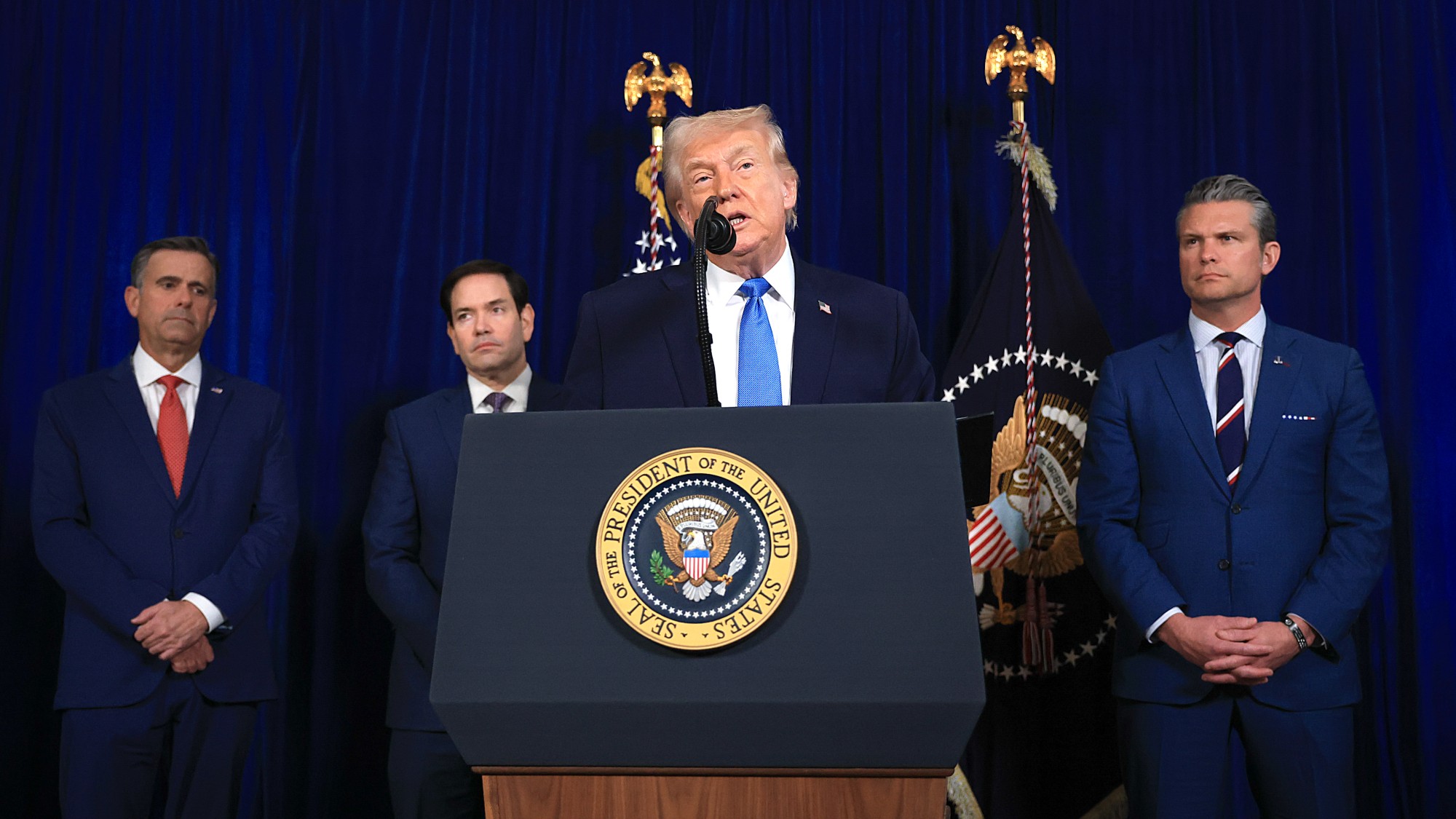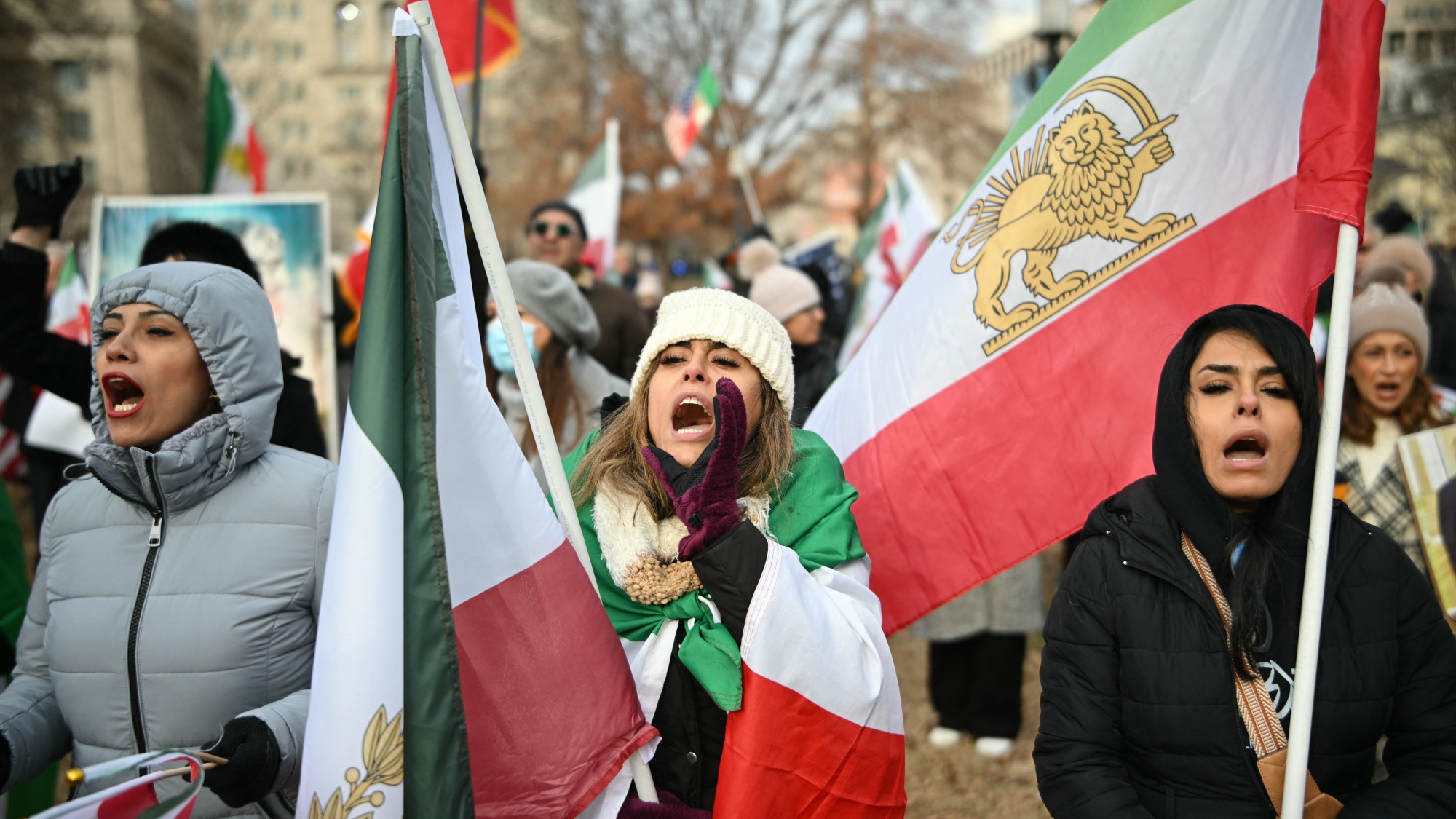Obama's shot at success in Iraq
What withdrawing combat forces does for Iraq, and Obama
What happened
President Obama on Friday said the U.S. had begun the work of ending the Iraq war. “Let me say this as plainly as I can," Obama said to Marines at Camp Lejeune, N.C. "By Aug. 31, 2010, our combat mission in Iraq will end." (The New York Times)
What the commentators said
The Week
Escape your echo chamber. Get the facts behind the news, plus analysis from multiple perspectives.

Sign up for The Week's Free Newsletters
From our morning news briefing to a weekly Good News Newsletter, get the best of The Week delivered directly to your inbox.
From our morning news briefing to a weekly Good News Newsletter, get the best of The Week delivered directly to your inbox.
Obama can follow this timetable without "plunging Iraq back into chaos," said Tim Cocks in Reuters, but his plan has risks. Iraqi forces are ready to start taking on greater responsibilities, and long-term stability will depend on them. But the Obama administration will have to "use adroit diplomacy" to make sure rival Iraqi groups don't backslide into fresh conflict.
It's a measure of how much conditions have changed, said Demetri Sevastopulo and Andrew Ward in the Financial Times, that Obama's plan won the approval of Sen. John McCain, his Republican rival in the presidential campaign. Before the election, McCain said Obama would "cut and run," but McCain is now one of the most important "cheerleaders" for Obama's withdrawal plan.
It's ironic, said John Barry in Newsweek. "Obama campaigned on the notion that Iraq was the bad war, and Afghanistan the good war." But now "the Iraq occupation, however bungled, gives promise of success." And that will allow Obama to fulfill a promise by bringing the troops home in time for the mid-term elections—giving him both military and "political triumph."
A free daily email with the biggest news stories of the day – and the best features from TheWeek.com
-
 Courgette and leek ijeh (Arabic frittata) recipe
Courgette and leek ijeh (Arabic frittata) recipeThe Week Recommends Soft leeks, tender courgette, and fragrant spices make a crisp frittata
-
 Trump’s power grab: the start of a new world order?
Trump’s power grab: the start of a new world order?Talking Point Following the capture of Nicolás Maduro, the US president has shown that arguably power, not ‘international law’, is the ultimate guarantor of security
-
 Unrest in Iran: how the latest protests spread like wildfire
Unrest in Iran: how the latest protests spread like wildfireIn the Spotlight Deep-rooted discontent at the country’s ‘entire regime’ and economic concerns have sparked widespread protest far beyond Tehran